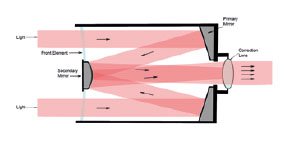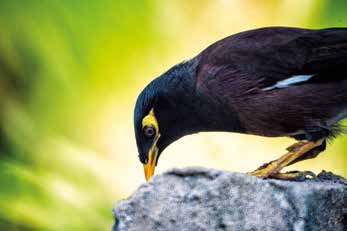articles/Review/samyang-page2
Samyang 800mm Mirror Lens - part 2 of 1 2 3
by Tom Lee Published 01/10/2014

In Use
Now that all the techy bit is out of the way, the proof of any lens is how easy it is to deal with in use.
The first test was to get through airport security. The light weight and small size allowed me to take a much reduced backpack with me keeping the weight to 7.5kg (less than the 10kg limit for hand luggage).
The strain on my shoulders from a lighter bag was also a relief. An unexpected drawback was the hand search (both ways). Apparently the short but wide shape of the lens looks like a small compressed gas bottle when viewed under the x-ray.
Given that focussing is disabled due to the need for a T2 mount, metering was surprisingly accurate and easy in Aperture Priority mode. The aperture takes care of itself (f8) and setting the ISO will vary the available speed for that aperture. All I had to do was make sure that the speed indicated was suitable for hand holding or monopod support. This was usually in excess of 1/2000s to allow for some camera movement. A useful technique when handholding long or slow lenses, is to take a short burst, 3-5 frames in succession. The first or second frame may be a bit dodgy but subsequent frames should be sharper as there is no jerking of the shutter and breathing is steadier.

The bokeh which typifies the mirror lens is shown on the rock beneath the bird's feet. Once again though the difficulties have resulted in a less than critically sharp shot.
A characteristic of mirror lenses is the doughnut-shaped highlights (bokeh) produced by the reflective design. Some photographers find them a distraction although I personally find them distinctive and quirky.
The low contrast provided by the 'as shot' images did not bother me in the slightest, as most professionals prefer this due to the amount of post processing we tend to do on Raw capture originals.
The major concern for me personally is the uncertainty of focussing, particularly with moving subjects. Whilst with shorter lenses, manual focusing is relatively easy, using a lens of this size with such a shallow depth of field, accuracy is essential. This is probably the main reason that this type of lens is not favoured by professionals. However, in optimal conditions and with good focussing, results are impressive.
Please Note:
There is more than one page for this Article.
You are currently on page 2 Contact Tom Lee
1st Published 01/10/2014
last update 09/12/2022 14:58:43
More Review Articles
There are 0 days to get ready for The Society of Photographers Convention and Trade Show at The Novotel London West, Hammersmith ...
which starts on Wednesday 15th January 2025





